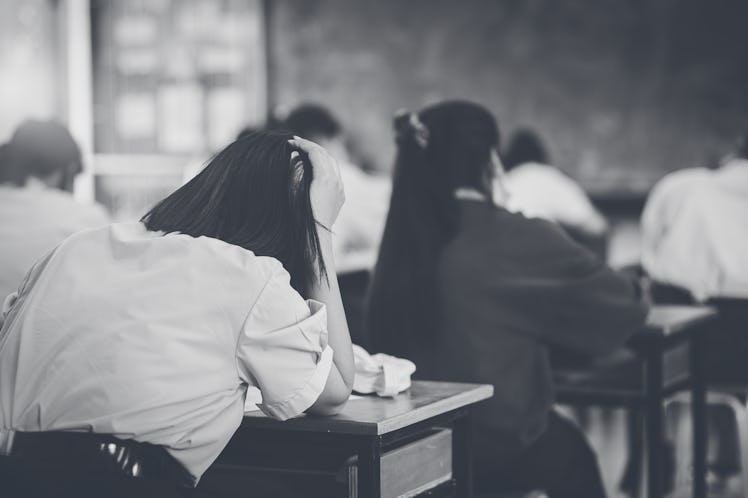Crack Of Dawn School Start Times Hurt Kids. One State Is Finally Changing That
California is the first state to push back school start times in accordance with the circadian rhythms of kids. It matters.

The struggle is real for parents and kids waking up for school in the pre-dawn hours. Sluggish, tired, grumpy tweens and teens are an accepted fact of the morning routine during the school year when the majority of public schools begin instruction around 8 am. Unfortunately, that early start time is a constant despite mounds of evidence pointing to the fact that later school start times would benefit kids mentally and physically. Regardless, schools have been slow to push back the first period.
But one state has decided to buck the status quo and actually follow the expert advice so that kids are more alert, well-rested, and avoid a series of negative health effects.
Beginning July 1, California will be the first state in the nation to legally require later school start times — public high schools will be allowed to begin instruction no earlier than 8:30 am and middle schools no earlier than 8:00 am. Both New York and New Jersey have similar bills under consideration, but nothing has been made official yet.
The later start time is a huge development. The American Academy of Pediatricians (AAP) has been advocating for later school start times for nearly a decade. The shift would make it easier for teens and tweens to get the sleep they need to be alert and healthy. There is plenty of science to back up how harmful early start times are for kids: around the time adolescents hit puberty, their body clocks, called circadian rhythm, actually shift forward about two hours. The 10-year-old child who was always reliably snoozing by 8:30 or 9:00 pm will find it difficult to get to sleep before 10:30 or 11:00 pm by the time they’re 13 or 14.
According to the National Sleep Foundation, children between six and 13 years of age need nine to 11 hours of sleep each night and teenagers need eight to ten hours of nightly rest. To get adequate rest, a teenager with a 6:30 a.m. wake-up time would need to be asleep by 8:30 or 9:00 pm each night to get adequate rest. But because of that pesky puberty circadian rhythm change, going to sleep that early is close to impossible for teens and tweens.
And it’s not just that kids can’t focus in school. Research has shown that sleep-deprived teens and tweens are yes, less able to focus and pay attention in school, but are also more likely to have lower grades, more missed school days, and lower graduation rates. Poor sleep also contributes to physical, mental, and emotional issues in teens like car accidents, sports injuries, anxiety, and suicidal thoughts or ideation.
Though changing start times throughout California is a start, there are still 49 other states full of tired teens and tweens who, on top of being stressed to the point of breaking by the demands of school, homework, extra-curriculars, and the stress of the world, are getting much less than the recommended amount of sleep to help them deal with all their stress and develop appropriately. California should not be an outlier state, it should be a model of how to support teens and tweens in their education, development, and health.